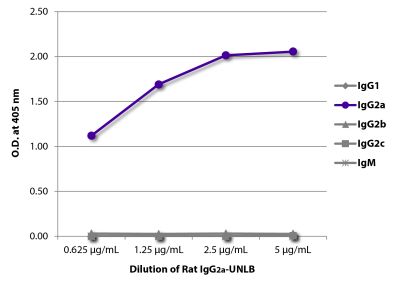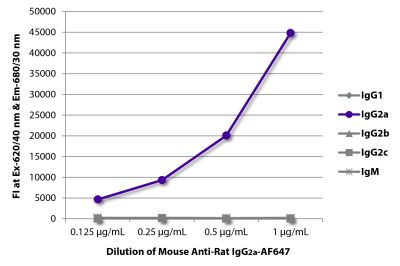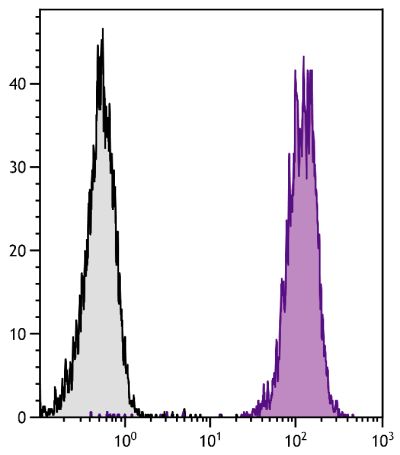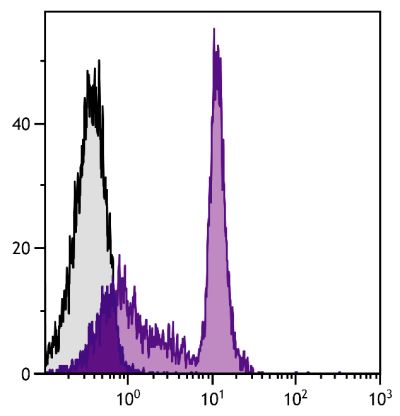Rat Anti-Mouse CD45RB-UNLB (C363.16A)
Cat. No.:
1675-01
Purified Anti-Mouse CD45RB antibody for use in flow cytometry and separation assays.
$223.00
| Clone | C363.16A |
|---|---|
| Isotype | Rat IgG2aκ |
| Isotype Control | Rat IgG2a-UNLB (KLH/G2a-1-1) |
| Specificity | Mouse CD45RB |
| Description | CD45RB represents an exon B-dependent form of CD45 glycoprotein. It is expressed at high density on peripheral B cells, the suppressor/cytotoxic subpopulation of T lymphocytes, a subset of helper T cells, most thymocytes, and at low density on macrophages and dendritic cells. |
| Immunogen | Cloned mouse Th cell line |
| Conjugate | UNLB (Unconjugated) |
| Buffer Formulation | Borate buffered saline, pH 8.2 |
| Clonality | Monoclonal |
| Concentration | 0.5 mg/mL |
| Volume | 1.0 mL |
| Recommended Storage | 2-8°C |
| Applications |
Flow Cytometry – Quality tested 1,2,4 Separation – Reported in literature 3 |
| RRID Number | AB_2795131 |
| Gene ID |
19264 (Mouse) |
| Gene ID Symbol |
Ptprc (Mouse) |
| Gene ID Aliases | loc; B220; Cd45; L-CA; Ly-5; T200; CD45R; Lyt-4 |
| UniProt ID |
P06800 (Mouse |
| UniProt Name |
PTPRC_MOUSE (Mouse) |
Documentation
Certificate of Analysis Lookup
Enter the Catalog Number and Lot Number for the Certificate of Analysis you wish to view
- 1. Johnson P, Greenbaum L, Bottomly K, Trowbridge IS. Identification of the alternatively spliced exons of murine CD45 (T200) required for reactivity with B220 and other T200-restricted antibodies. J Exp Med. 1989;169:1179-84. (FC)
- 2. Hathcock KS, Laszlo G, Dickler HB, Sharrow SO, Johnson P, Trowbridge IS, et al. Expression of variable exon A-, B-, and C-specific CD45 determinants on peripheral and thymic T cell populations. J Immunol. 1992;148:19-28. (FC)
- 3. Farber DL, Acuto O, Bottomly K. Differential T cell receptor-mediated signaling in naive and memory CD4 T cells. Eur J Immunol. 1997;27:2094-101. (Sep)
- 4. Borlado LR, Redondo C, Alvarez B, Jimenez C, Criado LM, Flores J, et al. Increased phosphoinositide 3-kinase activity induces a lymphoproliferative disorder and contributes to tumor generation in vivo. FASEB J. 2000;14:895-903. (FC)
See All References







